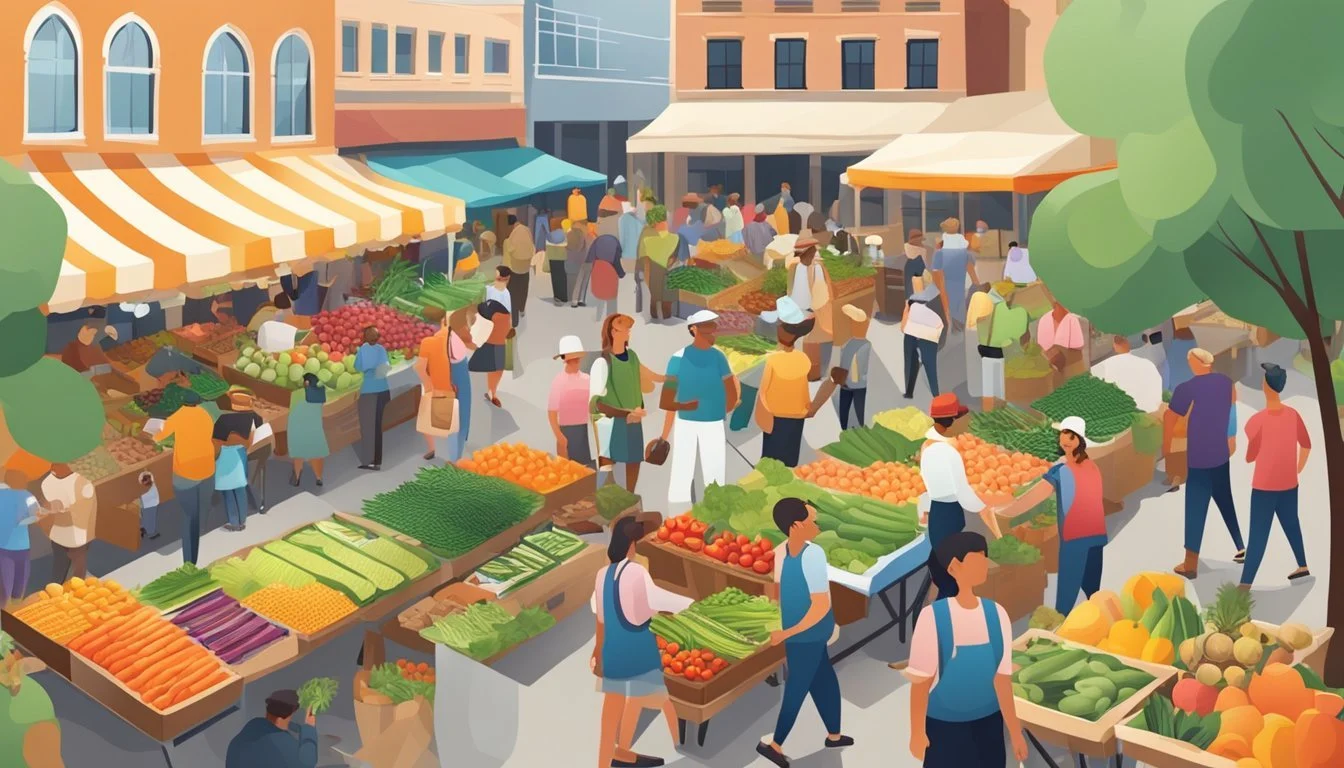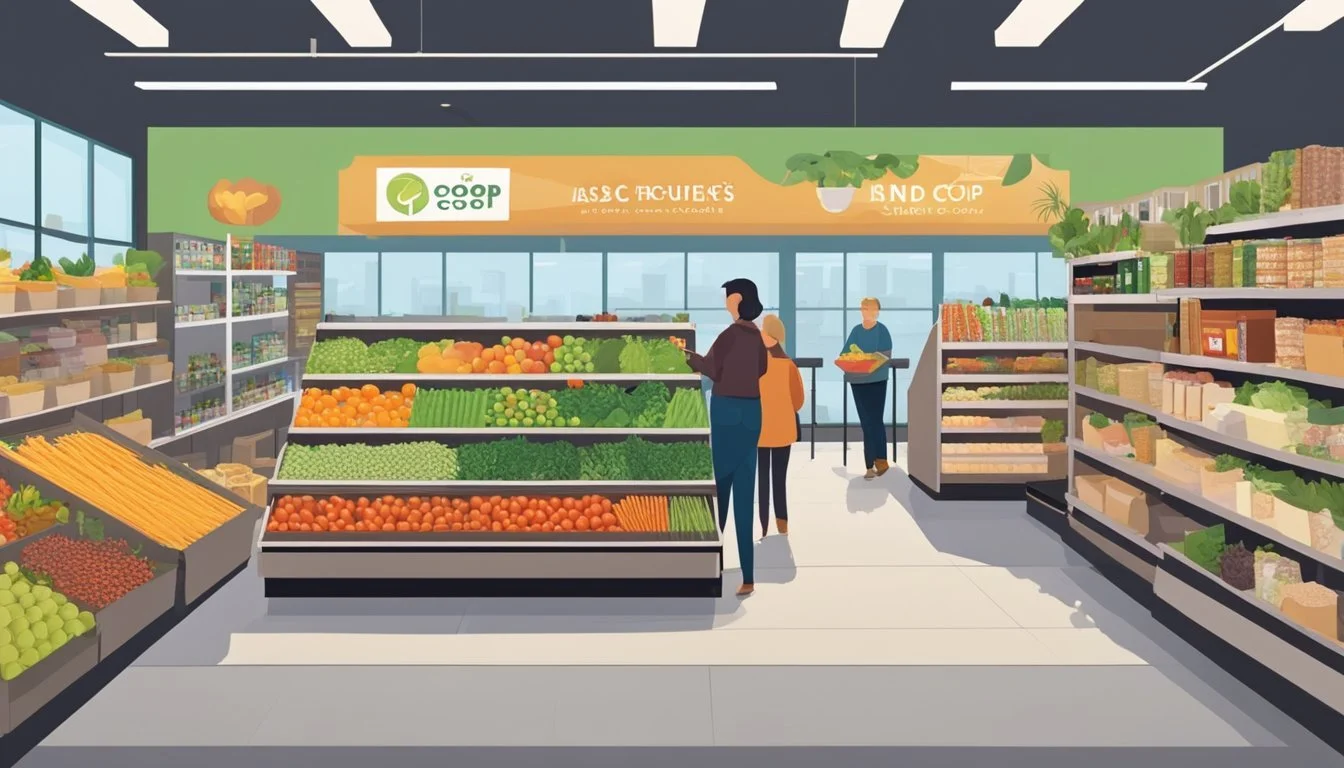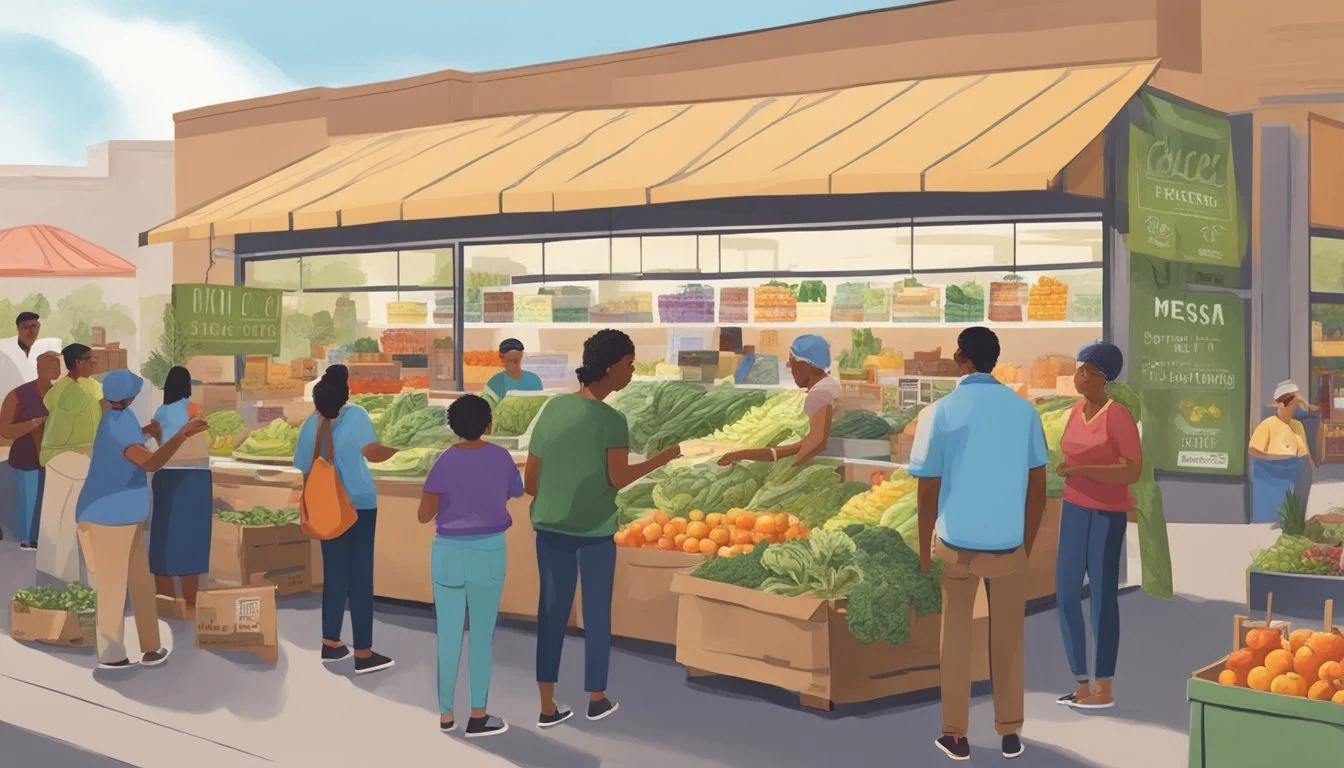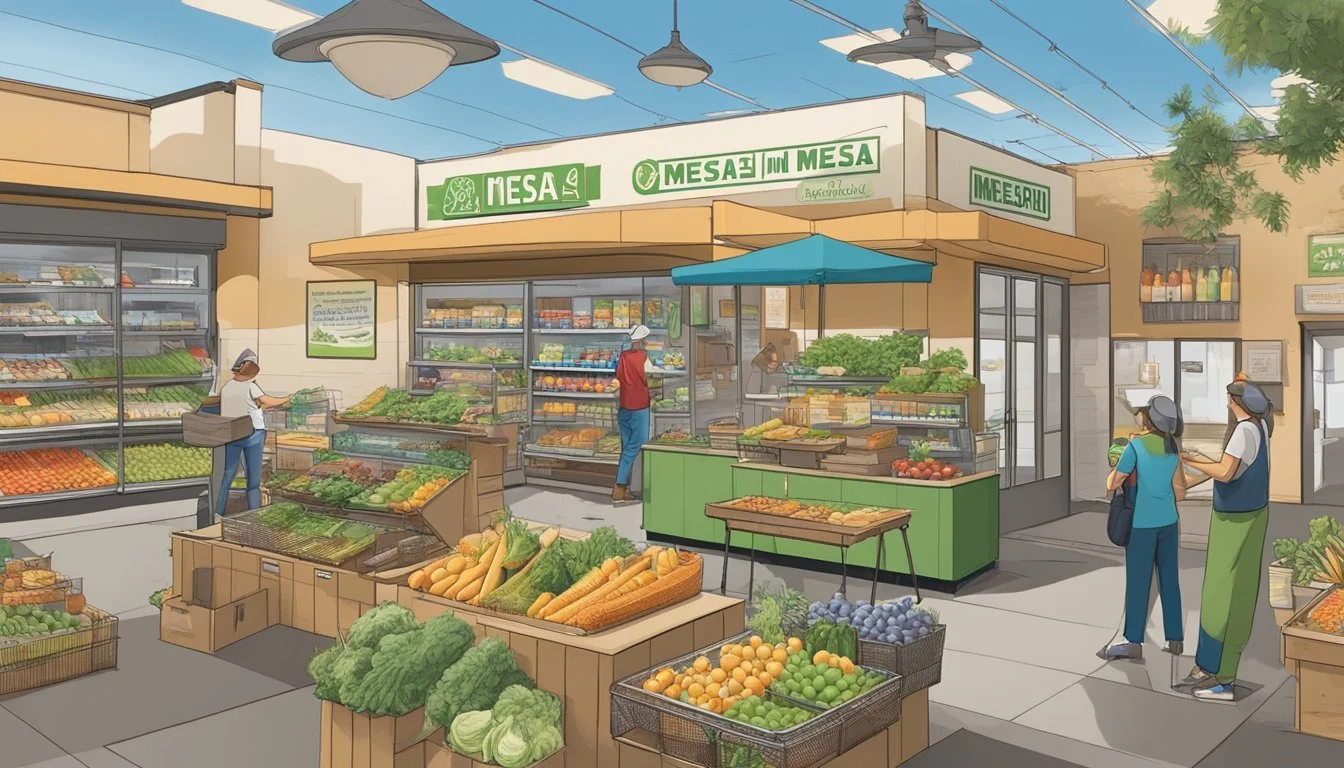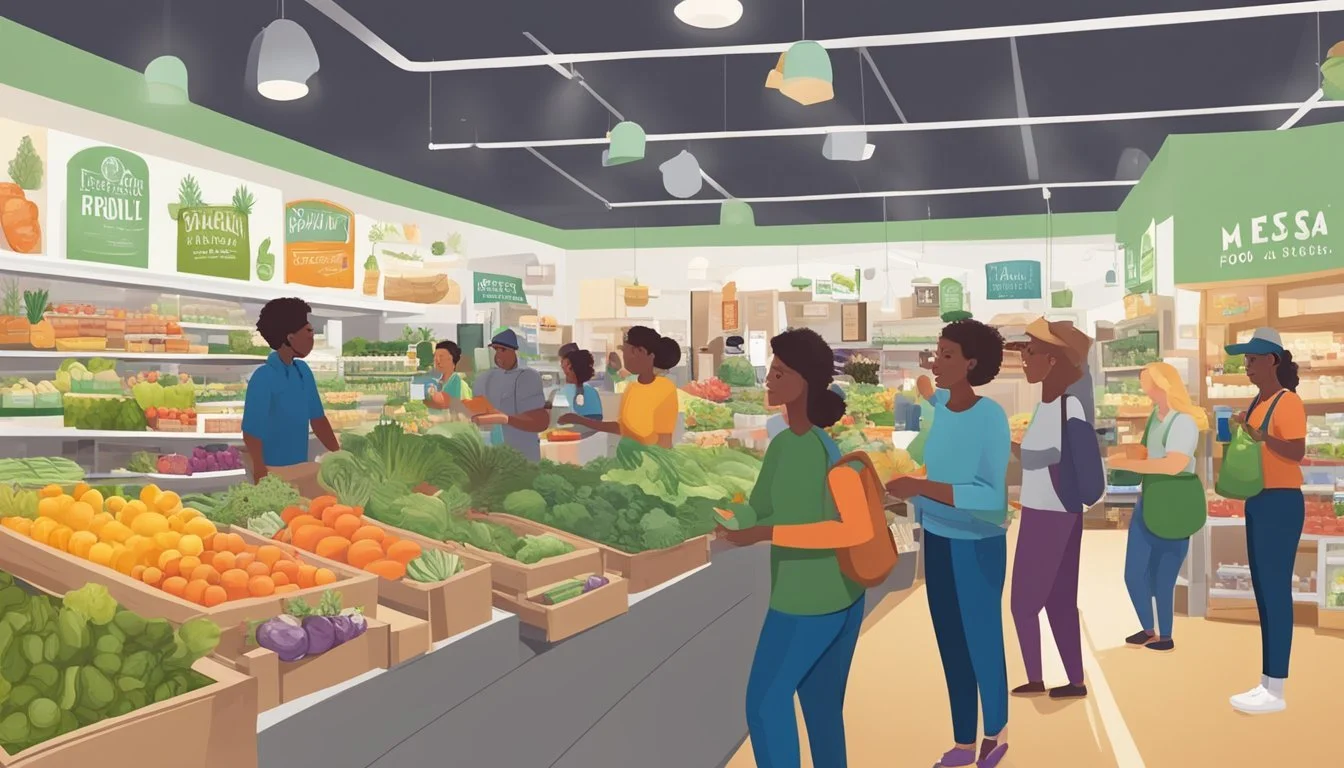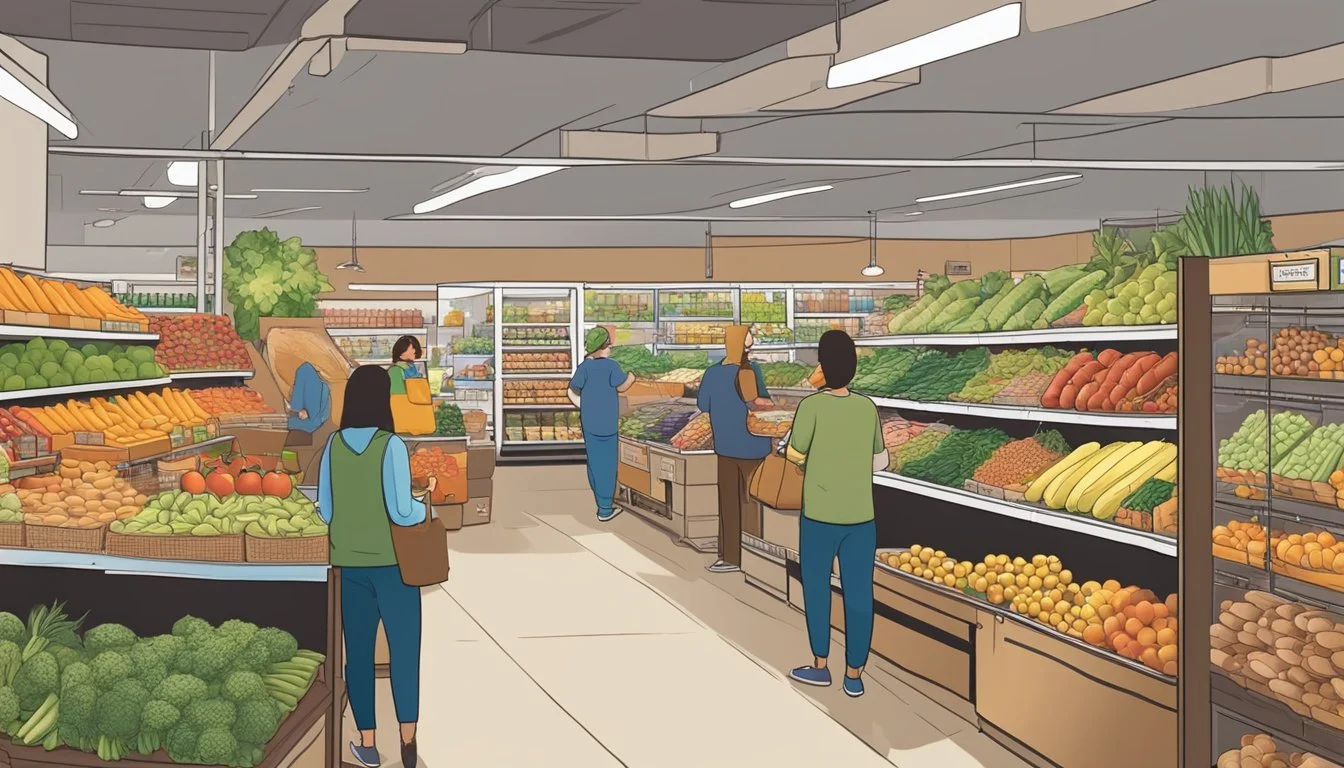Guide to Food Co-Ops in Mesa, AZ
Your Essential Resource
Mesa, Arizona, with its vibrant community and focus on sustainability, is an environment that fosters the flourishing of food cooperatives. A food co-op, or cooperative grocery store, is a business owned and democratically governed by its members with the purpose of serving their needs and values. Unlike traditional retail models, co-ops aim to serve their members with a focus on local, high-quality products, often emphasizing organic and non-GMO options, while also supporting local farmers and producers.
In Mesa, food co-ops like True Garden Urban Farm highlight the integration of advanced agricultural technologies, such as aeroponic systems, to produce food year-round in a desert climate. This not only exemplifies the innovative spirit of the Mesa community but also provides shoppers with fresh, locally-grown produce irrespective of the season. Moreover, entities like Bountiful Baskets Food Co-op contribute not only to the economy but also to the social fabric of the city by offering an alternative to traditional grocery shopping, focusing on affordability and community engagement.
These cooperatives often go beyond simply selling food; they become hubs for education on healthy eating and sustainable living. Through collaborative efforts, Mesa's food co-ops are committed to consumer education, ensuring that their customers make informed food choices. This dedication to quality, value, and community empowerment is indicative of the co-op business model and is echoed throughout the cooperative grocery stores of Mesa, Arizona.
History and Philosophy of Food Co-Ops
Food cooperatives or co-ops trace their roots back to collective efforts that began in human societies long ago. These establishments embody a philosophy centered on community and collaboration. Food co-ops are distinguished by their community-owned structure, setting them apart from traditional grocery models.
Member Control is foundational to food co-ops. Members are individuals who invest in the cooperative by purchasing a share, granting them a say in the operations. This democratic approach ensures that the needs and values of the community directly influence the co-op's offerings and practices.
Key Elements Description Community-Owned Assets and profits belong to the local members, prioritizing local needs over external investors. Democratic Member Control Decisions are made by member-owners, each holding equal voting power.
Historically, food co-ops have been integral in bringing about social and economic reform at the local level. These establishments often focus on providing healthy, locally sourced foods, fostering local economies, and practicing sustainability.
Food co-ops typically operate on a set of principles that guide their mission:
Voluntary and Open Membership: Open to all without gender, social, racial, political, or religious discrimination.
Democratic Member Control: Members actively participate in setting policies and making decisions.
Economic Participation: Members contribute equitably and control the capital of the cooperative.
Autonomy and Independence: Food co-ops remain self-help organizations controlled by their members.
The history and philosophy of food co-ops reflect a commitment to enhancing the wellbeing of their communities, promoting a sustainable food system, and maintaining member control and ownership.
Benefits of Joining a Food Co-Op
Joining a food co-op in Mesa, AZ provides members with an array of tangible benefits, from improving local food systems to fostering community connections.
Support for Local Farmers
By participating in a food co-op, members directly support local farmers. These cooperative grocery models often buy directly from local producers, ensuring that more of the consumer's dollar goes to the people growing the food. This model helps sustain the local economy and can lead to the development of more resilient food systems.
Access to Organic and Non-GMO Produce
Food co-ops frequently offer a diverse selection of organic and non-GMO produce. Members have the advantage of accessing products that adhere to high quality standards, often surpassing what is available at traditional grocery stores. The commitment to non-GMO and organic seed in the supply chain reassures consumers about the quality of their purchases.
Community Engagement
Food co-ops are community-owned and operated, which means each member has a say in the business's operations. This fosters a stronger sense of community engagement, as members can share concerns and contribute to the direction of the co-op. Membership often leads to increased community involvement, including educational programs and local food initiatives, further enriching the local culture and economy.
How Food Co-Ops Work in Mesa, AZ
In Mesa, AZ, food cooperatives (co-ops) are democratically controlled by their members, who actively participate in setting policies and making decisions. Members share ownership of the cooperative, and its business model signifies a commitment to serving their needs and interests.
Member Control and Responsibilities
Members of a Mesa co-op exercise control over the organization through a democratic process. Each member typically has an equal vote in electing the board of directors or in major decisions impacting the operation. They are encouraged to get involved in various volunteer activities, foster community engagement, and provide valuable input on decisions.
Vote: Equal voting rights for each member.
Board of Directors: Elected by members.
Community Involvement: Encouraged for members.
Decision Input: Members contribute to policy-making.
Responsibilities of members often extend to certain commitments to support the co-op, such as purchasing a share or paying a membership fee, working shifts at the co-op, and participating in events and meetings.
Membership Fees: Often required for joining.
Work Requirements: May be asked to volunteer time.
Attendance: Expected at meetings and co-op events.
Business Model
The business model of a food co-op in Mesa is centered on member welfare rather than solely on profit maximization. Profits generated by the co-op are reinvested into the business or returned to the members in the form of dividends based on patronage, rather than based on investment or ownership share.
Key Features:
Profit Reinvestment: For improvement and expansion of the cooperative.
Patronage Dividends: Based on members' use of services, not investment size.
Local Focus: Emphasizes providing local, fresh, and sustainable products.
Furthermore, Mesa co-ops aim to keep money within the local community, supporting local farmers and artisans. This model contributes to the sustainability of the cooperative and promotes a more resilient local food economy.
Food Co-Op Membership Details
Food Co-ops offer a unique option for consumers looking to have a stake in the grocery stores they shop at. They prioritize high-quality local products and allow members to enjoy various benefits, including discounts and member control.
Becoming a Member
When an individual decides to join a food co-op in Mesa, AZ, they typically pay a one-time membership fee. For example, the Phoenix Food Co-Op requires a payment of $100 to become a standard member. This fee grants the individual membership status, providing them with the ability to participate in co-op decisions and partake in its benefits. Memberships are not confined to specific time frames and are often refundable based on the discretion of the co-op board and the availability of funds.
Membership Benefits
Members of a food co-op can expect a variety of benefits:
Discounts: Members may receive a 15 to 20 percent discount on groceries.
Shop Local: The opportunity to shop for locally grown, non-GMO, and organic produce.
Convenience: Food co-ops like the ones near Mesa typically offer a range of grocery items that are selected for their quality and value.
Member Control: Members have a say in the business decisions, which aligns the co-op’s practices with their interests.
The specific benefits offered can vary from one co-op to another, but they all align with the concept of providing members with convenience, control, and a commitment to the community and high-quality groceries.
Local Food Systems and Food Co-Ops
Food co-ops in Mesa, AZ connect consumers with locally sourced and sustainable produce, often employing innovative farming techniques to ensure year-round availability. They serve as vital links between local food producers and the community.
LocalHarvest and True Garden Urban Farm
True Garden Urban Farm, a key player featured on LocalHarvest, exemplifies the integration of technology with agriculture in Mesa. They utilize a tower garden aeroponic system from Tower Farms, a method known for its efficiency and ability to grow produce without soil. This system not only conserves water but also allows True Garden to produce food year-round.
LocalHarvest contributes to the strength of Mesa’s local food system by offering a platform where consumers can easily find information about producers like True Garden Urban Farm. LocalHarvest also highlights the availability of local food at farmers' markets, fostering a community where the accessibility to fresh, non-GMO, and pesticide-free produce is a priority.
The synergy between True Garden and LocalHarvest demonstrates the city's commitment to supporting sustainable food systems. Consumers benefit from access to fresh produce, such as the non-GMO, organic seed-based products from True Garden, which are grown without synthetic pesticides, herbicides, or fungicides. Such partnerships are essential for the growth and sustenance of local food systems and for ensuring that the community has access to healthy, sustainable food choices.
Organic Farming and Environmental Impact
The incorporation of organic farming practices in Mesa, AZ is pivotal to reducing the environmental footprint of food production. These methods prioritize the well-being of the ecosystem, utilizing renewable resources and conserving soil and water.
Avoidance of Synthetic Pesticides
Organic farming in the region emphasizes the use of non-GMO and organic seed varieties which are cultivated without synthetic pesticides, herbicides, or fungicides. This approach mitigates the detrimental impacts of chemical inputs on the environment and public health. The use of naturally-derived solutions to control pests and diseases not only supports the local ecosystem but also promotes agricultural biodiversity.
Benefits of Avoiding Synthetic Chemicals:
Protects soil quality and water sources.
Maintains biodiversity by reducing harm to non-target species.
Supports pollinator health crucial for crop production.
Mesa's food co-ops like True Garden Urban Farm harness such organic practices, underscoring a commitment to sustainable agriculture and the production of healthful foods, while contributing to a more environmentally responsible food system.
Shopping at Food Co-Ops
Food co-ops in Mesa, AZ offer a unique shopping experience by providing access to high-quality groceries and produce. These cooperatives focus on catering to the needs of the community by prioritizing local food options.
Product Selection
At a food co-op, shoppers can expect a diverse array of products that often exceed what's available at conventional grocery stores. From fresh fruits and vegetables to artisanal breads, Mesa's co-ops feature both staple groceries and unique items. These establishments typically offer organic and non-GMO products, which cater to health-conscious consumers.
Local vs. Outsourced Products
Local sourcing is a hallmark of food co-ops. They prioritize products from local farmers and producers, thus supporting the regional economy and providing customers with the freshest possible options. Here's a comparison of local versus outsourced products often found in food co-ops:
Local Products Outsourced Products Seasonal fruits and vegetables Specialty items not available locally Locally produced dairy and meats Fair-trade coffee and chocolate Artisanal goods from nearby vendors International cheeses and spices
Mesa's food co-ops strive to balance their product offerings by supplying locally-sourced groceries while also meeting the demand for global flavors through outsourced items.
Mesa's Community Initiatives
Mesa, Arizona, has undertaken significant community initiatives to bolster local food systems and enhance food security through collaborative endeavors and educational programs aimed at both consumers and food businesses.
Partnerships with Local Restaurants
Mesa's relationship with local restaurants forms a critical pillar of its community food initiatives. The city has harnessed local restaurants to address food insecurity, especially during the COVID-19 pandemic. Mesa capitalized on federal CARES Act funding to engage with community partners and expand its food assistive programs. Despite the end of Mesa CARES Food Programs in December 2020, the legacy of these partnerships provides a framework for ongoing collaborations between the city and local dining establishments.
Education and Outreach
To further its initiative, Mesa focuses on education and outreach with a twofold approach: supporting local food producers, such as farmers' market managers, and providing resources for community education. Local First Arizona has established the Mesa Community Kitchen at El Rancho del Sol, conducting programs since 2018 that assist small, local food businesses and provide educational outreach. This community-owned kitchen aids in nurturing the local food system while also serving as an affordable housing development, enhancing community engagement.
By promoting local produce and food entrepreneurship, Mesa is investing in a sustainable food ecosystem that benefits all stakeholders involved, from local farmers to the community at large.
Food Co-Op Locations in Mesa, AZ
Mesa, AZ hosts a variety of food co-ops that offer fresh, locally-sourced produce and goods. These establishments are known for their dedication to community building and sustainability.
Phoenix Food Co-Op
The Phoenix Food Co-Op operates with the objective of providing healthy, locally-produced food options to the community. It's a community-owned cooperative grocer pioneering in creating an inclusive space while supporting local farmers and artisans. Address information for the Phoenix Food Co-op is not provided, but through their initiatives, they are recognized as a pillar in the local food movement in the Phoenix area, which includes Mesa, AZ.
Mesa's Tower Farms
Situated within Mesa, Tower Farms emphasizes on innovative agriculture practices. It offers a different approach to food co-ops through vertical farming. This method results in a consistent supply of fresh produce with a smaller land footprint, aligning with the area's sustainability goals. Visitors and members can look forward to quality produce that prioritizes environmental stewardship.
By supporting these co-ops, residents in Mesa and the wider Phoenix area have access to nutritious food, often organic and sustainably grown, that also reinforces community engagement and economic resilience.
Challenges Facing Food Co-Ops
Food cooperatives, commonly known as food co-ops, confront a multitude of challenges that can impact their sustainability and growth. One primary issue is the competitive market environment where they must hold their ground against larger grocers and supermarket chains. These bigger entities often enjoy economies of scale, which allow them to offer lower prices and wider product ranges, making it difficult for co-ops to compete.
In addition, food co-ops face the challenge of capital and funding. Initial startup costs for food cooperatives can be significant, and they often rely on member equity and community support, which may not always be readily available.
Membership engagement also plays a crucial role. Co-ops rely on the active participation of their members for governance, volunteer work, and community outreach. However, maintaining an active membership base can be challenging in an age where convenience is often prioritized over community involvement.
Supply chain issues are another challenge food co-ops must navigate. They often prioritize local and sustainable food sources, which may not be as consistent or readily available as those of larger commercial distributors, potentially leading to inventory challenges.
Lastly, awareness and perception can play a substantial role. The cooperative model isn't always well-understood by the public, and co-ops must work diligently to educate potential members and customers about the benefits of co-op membership and the importance of supporting local economies.
To summarize, food co-ops in Mesa and beyond must navigate:
Competition with larger grocers
Funding and financial sustainability
Member engagement and participation
Sourcing and supply chain steadiness
Public awareness and understanding
Addressing these challenges requires strategic planning, a robust community support network, and a dedication to the cooperative principles that drive their mission.
Frequently Asked Questions
What is a food co-op?
A food co-op is a grocery store owned and democratically controlled by its members. They typically offer a variety of produce and emphasize support for local farmers and producers.
Who can shop at a food co-op?
In Mesa, AZ, food co-ops are open to the public, but members may receive additional benefits such as discounts or the ability to vote on important matters relating to the store.
What are the benefits of becoming a member of a food co-op?
Members usually have a say in the co-op's operations, gain access to special member-only deals, and may share in any profits in the form of annual dividends.
Does the food co-op offer convenience?
Yes, Mesa food co-ops focus on convenience by providing fresh, locally-sourced produce and products. Some co-ops may also offer food delivery services.
What kind of produce can I find at a food co-op?
Food co-ops often prioritize organic and locally grown fruits and vegetables, offering seasonal selections that support local agriculture.
Membership Benefit Description Democratic Control Members can vote on major decisions. Produce and Products Access to fresh, local, and sustainable goods. Convenience Locally centered shopping experience, often facilitating delivery services. Engagement Opportunities to participate in community events and educational programs.

